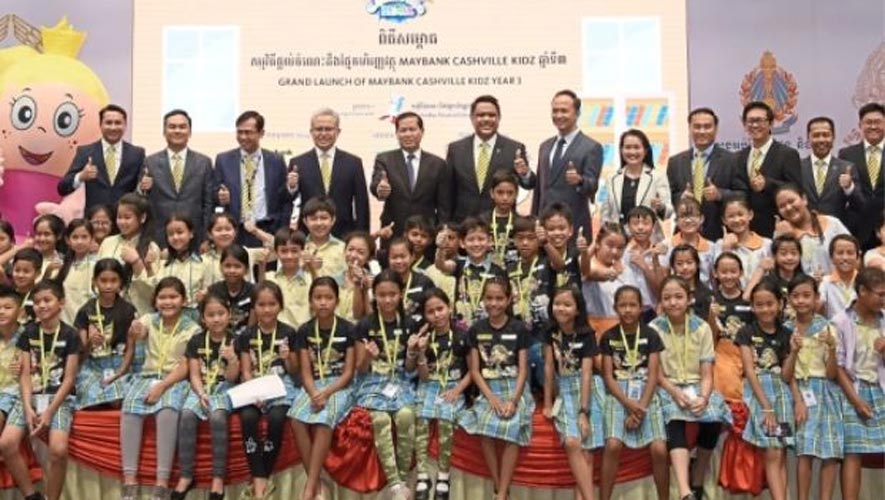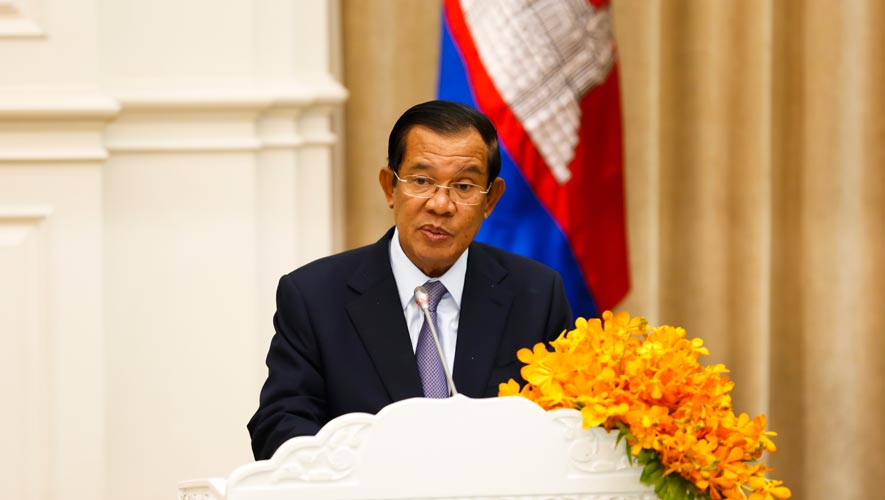Since it was first introduced in Cambodia, the CashVille Kidz program with animated cartoon series has had a huge impact as the Kingdom seeks to increase the level of financial literary among its people amid a booming economy.
For the latest Cambodian Business news, visit Khmer Times Business
A flagship initiative of Malaysian headquartered Maybank (Cambodia) Plc, CashVille Kidz is aimed at boosting financial literacy among schoolgoing children. Developed and produced by MoneyTree Asia Pacific, the award-winning programme uses cartoon characters to teach eight to 12-year-olds how to manage their money.
To maximise its reach and impact, CashVille Kidz was designed to be fun and educational, says Michael Reyes, founder and chief executive officer of MoneyTree. It is being run by Maybank Foundation, the corporate social responsibility (CSR) arm of Maybank.
The program was first implemented in Malaysia in 2013, where it reached more than 180,000 students from 790 schools in six years.
Fresh from a successful debut there, CashVille Kidz was introduced in Cambodia in 2016. It was implemented with support from National Bank of Cambodia (NBC) and the Ministry of Education, Youth and Sports (MOEYS).
Success in Cambodia
Now in the third year in Cambodia, CashVille Kidz continues to have a big impact as it reaches more students and schools.
Mohd Hanif Suadi, Maybank CEO, says the program is achieving the desired results. “It continues to create a positive impact among children as we build a generation of young people who are equipped with adequate financial knowledge that is beneficial to them in the future,” he stresses.
To date, CashVille Kidz has reached more than 5,000 Cambodian students from 23 schools. Hanif says the program is imparting the right knowledge and discipline. “It is helping Cambodian youths to be responsible financially,” he says.
To gauge its effectiveness, program assessments are done pre and post implementation. Last year, an average of 25.38 percent overall improvement was recorded.
Maybank Foundation CEO Shahril Azuar Jimin says the results have been encouraging. In 2018, they were able to train 4,000 in Phnom Penh, exceeding their target of 3,200 students. Given its success, the foundation expanded the program this year.
NBC director-general Chea Serey says she is happy with the progress of the program from the start until now. She says Cambodia has two methodologies of embedding financial literacy knowledge in people.
“From NBC, we have Let’s Talk Money where we distribute books with questions and answers. The other methodology is via Maybank’s implementation of CashVille Kidz, an animated cartoon series, games, and tests for kids to learn and understand financial literacy.
“There are many other methodologies to teach people about financial literacy. I’m very happy with the current result. I would like to encourage other financial institutions to have such agendas as well,” Serey adds.
Shahril says that Cashville Kidz Financial Literacy Programme 2019 will be implemented in 30 schools within Phnom Penh and other key provinces of Cambodia, including Siem Reap and Kampong Cham. In two years, the bank targets financial literacy education for 20,000 students from across the Kingdom.
Widespread financial illiteracy
The program is timely for a country where knowledge about finances and related matters among the young and old is negligible, at best.
The Standards & Poor Global Financial Literacy Index placed Cambodia 135th out of 140 countries in 2015. The Kingdom was also among the lowest-performing countries in the financial literacy survey carried out by the Asian Development Bank Institute (ADBI) in 2017. The survey included 30 countries in Asia and the Pacific.
Many experts point to financial illiteracy as among the most significant obstacles to Cambodia’s growth. They say the financial literacy problem needs to be reduced or eliminated if Cambodia wants to grow further and be on par with developed countries.
It was noted that countries with high financial literacy are also the ones with the best developed economies. This prompted NBC and other stakeholders to emphasise on improving financial literacy in the last few years.




